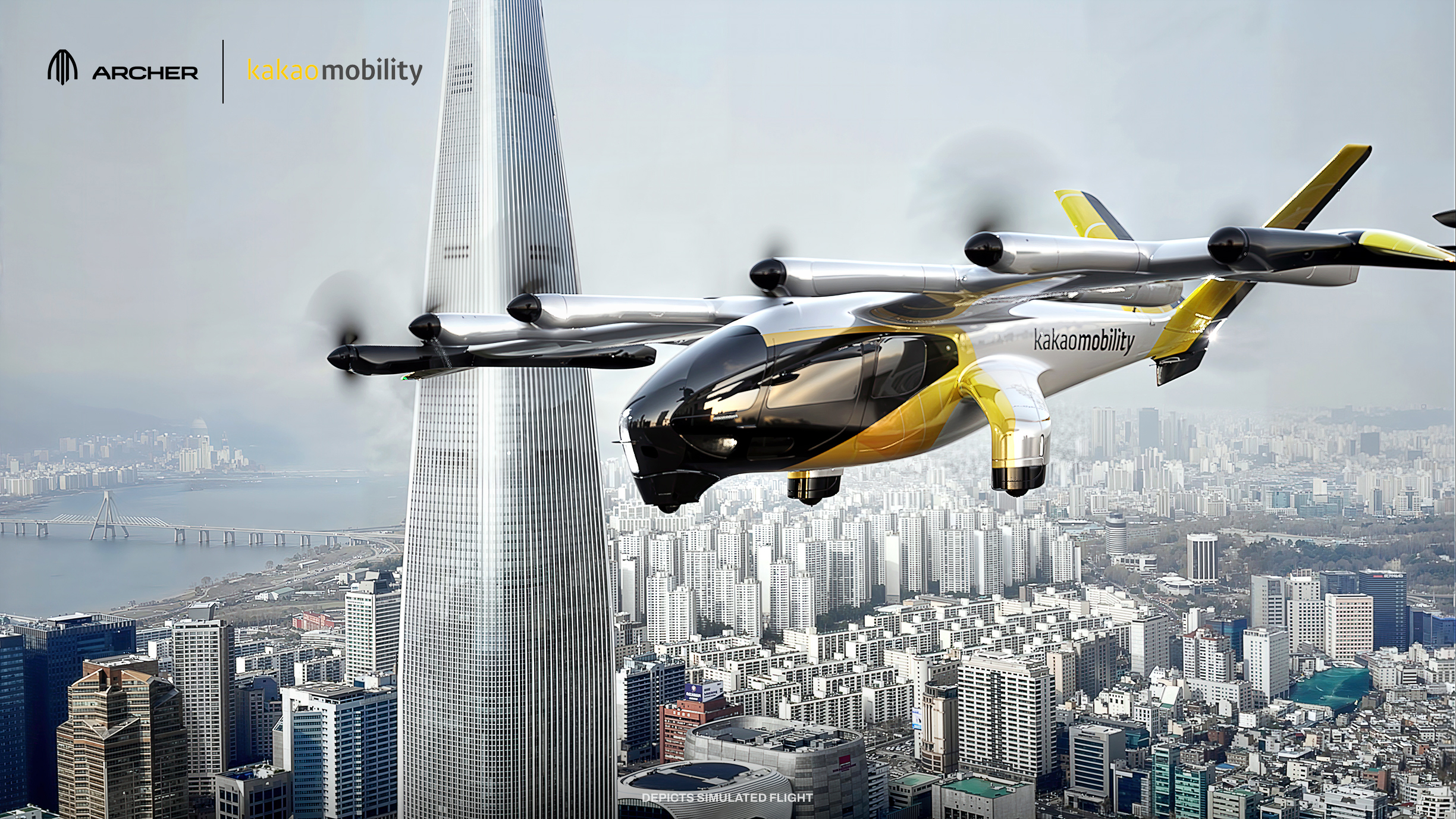The concept of flying taxis has long been a staple of sci-fi, but today, it’s on the brink of becoming a reality. Companies like Joby Aviation, Archer Aviation, and Wisk Aero are leading the charge, with major backing from aviation giants such as Boeing and Airbus. But how close are we to actually hailing an air taxi, and what does this mean for the future of urban transportation?
(Disclosure: The parent company of Rabbt.org holds stock in Joby Aviation and Archer Aviation. This article is for informational purposes only and does not constitute financial advice.)
The State of the Industry
A recent Fox Business article highlights how electric vertical takeoff and landing (eVTOL) aircraft are shaping the next generation of travel. These futuristic taxis aim to cut travel time significantly—imagine flying from downtown Los Angeles to LAX in just 10 minutes, compared to a 45-minute drive in traffic.
The industry is seeing massive investment, with United Airlines pre-ordering eVTOLs, and cities like New York and Dubai testing pilot programs. However, there are still regulatory, infrastructure, and scalability hurdles to overcome. The FAA (Federal Aviation Administration) is working on certifications for eVTOLs, but mass deployment could take years.
Market Movement: Who’s Leading the Charge?
Several companies are racing to be the first to launch commercial air taxi services:
Joby Aviation (NYSE: JOBY) – Backed by Toyota, Joby is one of the most advanced players, targeting a 2025 launch for their air taxi service.
Archer Aviation (NYSE: ACHR) – Partnered with United Airlines, Archer is focusing on urban air mobility networks in major metropolitan areas.
Wisk Aero – Owned by Boeing, Wisk is developing autonomous flying taxis with a focus on safety and scalability.
Investors are taking note, with stocks in these companies experiencing significant volatility as regulatory milestones and technological advancements unfold.
Challenges and Future Outlook
While the promise of flying taxis is exciting, challenges remain:
Regulatory Approval – The FAA and global aviation authorities must ensure these aircraft are safe for mass adoption.
Infrastructure Development – Cities need “vertiports” for takeoff and landing, requiring billions in investment.
Public Adoption – While wealthy travelers may embrace the technology first, broader acceptance will depend on cost and accessibility.
Despite these hurdles, many experts predict that flying taxis will become part of mainstream transportation by the early 2030s. As battery technology improves and air traffic systems evolve, urban air mobility could revolutionize how we navigate congested cities.
As of March 2025, the electric Vertical Take-Off and Landing (eVTOL) aircraft industry is rapidly evolving, with several companies leading the charge. Here are the top five eVTOL companies and their current standings in the market:AOPA+4Intellectual Market Insights+4The Times+4
1. Joby Aviation
- Headquarters: Santa Cruz, California, USAIntellectual Market Insights+1Green Stock News+1
- Founded: 2009Intellectual Market Insights+4Associated Press+4The Times+4
- Market Position: Joby Aviation is a pioneer in the eVTOL industry, focusing on developing air taxis for urban air mobility. The company has completed over 1,000 test flights and is actively working with the Federal Aviation Administration (FAA) to obtain full certification for passenger flights by 2025. Joby has secured significant funding, including substantial investments from Toyota, and has partnerships with companies like Uber. They plan to launch services in major cities, including New York and Los Angeles. youtube.com+12Intellectual Market Insights+12The Times+12exoswan.com+1The Times+1Wikipedia+2Associated Press+2IoT World Magazine+2
2. Archer Aviation
- Headquarters: San Jose, California, USAIntellectual Market Insights+1Green Stock News+1
- Founded: 2020The Times
- Market Position: Archer Aviation is focused on urban air mobility solutions and has secured partnerships with United Airlines and Stellantis. The company is rapidly advancing toward FAA certification and plans to begin commercial operations in 2025. Archer’s eVTOL aircraft is designed for short-haul urban travel, targeting key city hubs, airport transfers, and ridesharing networks. They have also unveiled a “Launch Edition” commercialization program with Abu Dhabi Aviation as their first customer. The Sun+11Intellectual Market Insights+11IoT World Magazine+11Green Stock News
3. Eve Air Mobility
- Headquarters: São José dos Campos, BrazilIntellectual Market Insights
- Founded: 2020The Sun+5Associated Press+5thesun.ie+5
- Market Position: Eve Air Mobility is backed by Embraer, one of the world’s largest aircraft manufacturers. The company focuses on developing scalable, safe, and cost-effective eVTOL networks for global cities. Eve has secured orders from major operators, including United Airlines and Halo Aviation, totaling around 2,770 aircraft pre-orders. The company plans to integrate its air taxis into city ridesharing networks, ensuring affordable pricing comparable to ground transport. Reuters+6Intellectual Market Insights+6exoswan.com+6exoswan.com
4. Vertical Aerospace
- Headquarters: Bristol, United KingdomIntellectual Market Insights+1IoT World Magazine+1
- Founded: 2016Intellectual Market Insights+1IoT World Magazine+1
- Market Position: Vertical Aerospace is developing the VX4, a four-passenger eVTOL with a range of 100 miles, designed for intercity travel. The company has secured partnerships with major airlines like American Airlines and Virgin Atlantic, ensuring a strong pipeline for future operations. Vertical Aerospace plans to launch commercial services in the UK and Europe by 2025. exoswan.com+3IoT World Magazine+3Intellectual Market Insights+3
5. EHang
- Headquarters: Guangzhou, ChinaThe Times+4Green Stock News+4IoT World Magazine+4
- Founded: 2014The Times+6Intellectual Market Insights+6IoT World Magazine+6
- Market Position: EHang specializes in autonomous air mobility solutions, pioneering fully autonomous, self-flying passenger drones. The company has been actively testing its models in China and Europe, with commercial launches planned for 2025. EHang’s focus on autonomous flight differentiates it from other eVTOL developers. youtube.com+4Intellectual Market Insights+4IoT World Magazine+4IoT World Magazine
These companies are at the forefront of the eVTOL industry, each bringing unique innovations and strategies to the rapidly evolving urban air mobility market.
Key Takeaways
eVTOLs are closer to reality than ever, with companies like Joby, Archer, and Wisk leading the charge.
Regulatory and infrastructure hurdles remain before mass adoption is possible.
Investment opportunities are growing, but volatility remains high in the early stages.
Flying taxis could become mainstream by 2030, reshaping urban transportation as we know it.
If you’re interested in the intersection of AI, automation, and the future of travel, stay tuned to Rabbt.org for more insights into cutting-edge technologies shaping our world.


0 Comments